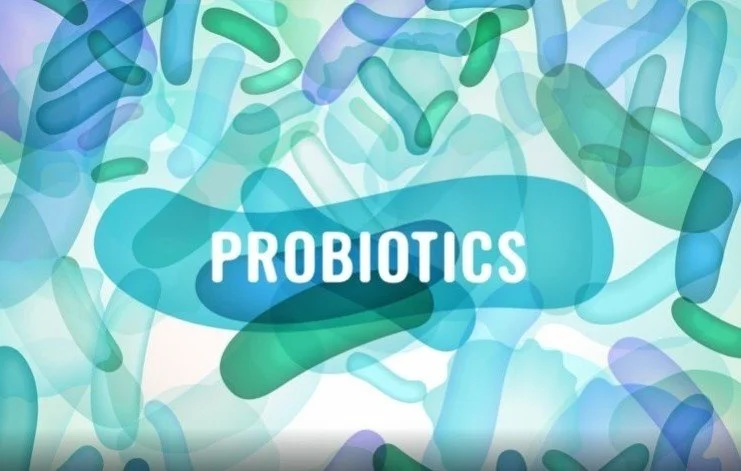Probiotics decoded: a Scientific Guide on Strains and their Benefits
What are probiotics?
Probiotics are living microorganisms, primarily bacteria and yeast, that provide health benefits when consumed in adequate amounts. They are often referred to as "good" or "friendly" bacteria because of their positive influence on our wellbeing.
They can be helpful for many health conditions, and specific strains impact specific systems, including the immune system, mental health and of course, our digestive system.
In this article, I will be primarily focusing on the effect of probiotics on gut health. Keep in mind they can create a chain of positive impacts on your overall health, including mental health, skin health and more.
Choosing the Right Probiotic
Most probiotics on the market currently are from the Lactobacillus and Bifidobacterium genus, the most studied probiotics so far. If you have SIBO and aren’t sure about adding in probiotics into your regimen, make sure to read my article on Probiotics and SIBO.
Strain Specificity: Different strains of probiotics have varied effects. For specific GI symptoms, it's essential to choose a probiotic with strains proven effective in clinical studies. This does not guarantee results, but it is a good start.
CFU (Colony-Forming Units): The potency of a probiotic is measured in CFUs. Consider products with an adequate CFU count to ensure you receive a beneficial dose. For SIBO patients, more is not always better.
Diversity Matters: Using a single strain of probiotic alone is unlikely to be a cure-all to your health problems. However, when multiple strains are consumed together, they have the ability to collectively outcompete harmful bacteria, contributing to the maintenance of a healthy gut environment.
Ideally, you would test your microbiome via a stool test to know which strains are abundant and which ones are low or undetectable. The idea is not to “replace” the ones you might be missing (very few probiotics can colonize the gut) but rather to avoid supplementing with genuses (family of strains) you already have plenty of (and perhaps even an overgrowth)!
The 3 main Types of Probiotics
Probiotics as we currently know them are usually supplements - they can come in capsules, powders, medicinal yogurts and drinks.
There are a LOT of probiotics on the market, most of them falling into one of these three categories:
Lactobacillus and Bifidobacterium
Saccharomyces boulardii, a beneficial yeast
Soil-based and Spore-based such as Bacillus speciesLet’s look into each of these and their benefits.
Lactobacillus and Bifidobacterium strains
Lactobacillus stands out as one of the most well-known and researched probiotics. It is commonly present in fermented foods such as yogurt and sauerkraut. This probiotic genus is recognized for its ability to break down lactose, the sugar in milk, making it easier for people with lactose intolerance to digest dairy products. Moreover, Lactobacillus strains have demonstrated support for a robust immune system and the promotion of digestive health.
Here are some helpful strains:
Lactobacillus reuteri DSM 17938
L reuteri DSM 17938 was shown to decrease methane gas in constipation patients determined by a SIBO breath test. It can thus be helpful with IBS-C, constipation, and methane gas-producing patients. This one is a good option. Yes, it is marketed for babies, but I recommend it for adults too. The chewables from the same brand sometimes trigger reactions, while the drops are well tolerated.
Lactobacillus reuteri DSM 17648
L Reuteri DSM17648 was shown to significantly reduce the load of H. pylori in healthy yet infected adults. It can attract specific organisms in the intestine and support their removal via the digestive tract, acting as a highly specific binder.
Lactobacillus plantarum 299v
L plantarum 299v (DSM 9843) was shown to provide symptom relief of abdominal symptoms in a large subset of irritable bowel syndrome (IBS) patients. This probiotic strain is ideal for people with IBS, abdominal pain, and bloating. It can also help with iron absorption, which is a great strain for people presenting iron deficiency or low ferritin. This one is a good option.
Lactobacillus rhamnosus GG
L. rhamnosus was shown to have a high antimicrobial activity against pathogens such as Salmonella species. There is also a growing body of evidence that suggests other benefits such as prevention and relief of various types of diarrhoea, and treatment of relapsing Clostridium difficile colitis.
Bifidobacterium is another widely acknowledged probiotic variety, primarily inhabiting the large intestine and contributing to a healthy balance of gut bacteria. Bifidobacterium strains have been linked to improved digestion, reduced inflammation, and enhanced immune function. You can find this probiotic in foods like kefir, certain cheeses, sourdough bread and fermented vegetables.
Here are some helpful strains:
Bifidobacterium longum BB536
Bifidobacterium longum BB536 was shown to be effective in alleviating gastrointestinal, immunological and infectious diseases. Existing evidence imply its ability to stabilize gut microbiota and improve the intestinal environment as well as improving immune function. It is also helpful in regulating carbohydrate (carbs) metabolism.
Bifidobacterium lactis HN019
Bifidobacterium lactis HN019 was shown to reduce whole gut transit time and the frequency of functional GI symptoms in adults.This probiotic strain is ideal for people with gastrointestinal symptoms who tend towards constipation and have slow transit. Overall, this is one of the best probiotics for gut motility.
Saccharomyces boulardii
Saccharomyces Boulardii was shown to prevent and complement the treatment of acute gastrointestinal diseases such as traveler’s diarrhoea or chronic diseases such as inflammatory bowel disease (IBD). S Boulardii is actually a beneficial yeast, not a bacteria, and the only yeast to be used as a probiotic so far. It is often labeled as S. cerevisiae (baker’s yeast). They have very similar genomes but they are not exactly the same. Saccharomyces Bourlardii has been shown to better survive at a lower stomach ph (which is what we want, an acidic stomach) in comparison to S. cerevisiae so I tend to focus on products that clearly state Saccharomyces Bourlardii, without the mention of Cerevisiae.
I love S. Boulardii. It is an all-around good probiotic-yeast strain. It is ideal for people with SIBO, SIFO and useful too in cases of traveler’s diarrhoea. If you have trouble tolerating probiotics with lactobacillus and bifidobacterium species, then trying this yeast-based probiotic may be helpful. It is also great alongside antibiotic treatment or the elemental diet to prevent fungal overgrowth.
Soil-based and Spore-based
Soil-based probiotics get their name because they come from the soil and typically include bacteria from the Bacillus family. These bacteria are often called spore-forming probiotics because they have a tough outer covering, or endospore, that makes them sturdy and resistant to tough conditions.
Unlike regular probiotics (first category), soil-based ones can withstand the harsh environment of your digestive system and stomach acidity. They also do not require any refrigeration and can even survive baking, making them a great on-the-go probiotic. When these soil-based probiotics reach your large intestine, the spores can change into their active form and start colonizing your gut.
Here are some helpful strains:
Bacillus coagulans (MTCC 5856 & GBI-30, 6086)
B. coagulans MTCC 5856 was shown to significantly decrease clinical symptoms like bloating, vomiting, diarrhea, abdominal pain and stool frequency in diarrhea predominant IBS patients. This strain has not been studied as extensively as some of the other probiotics but it has shown some promise in helping IBS-D patients.
B. coagulans GBI-30, 6086 was shown to aid the digestion of carbohydrates and proteins in the small intestine. It can be a good complement or alternative to digestive enzyme supplementation.
Bacillus subtilis (HU58)
Bacillus subtilis (HU58) was shown to have anti-inflammatory effects and help in reducing triglycerides levels as well as a reduction of symptoms linked to leaky gut syndrome. It is usually well tolerated, even in SIBO patients.
Bringing it all together
As you can see, there are a lot of good options for gut support in the probiotics world. Where does one start? The truth is, it is very hard to know which one will work for you specifically, so it does not really matter. Just start with one based on the symptoms you have and the corresponding strain.
I typically start my patients on either S. Boulardii or a Bacillus probiotic first as these tend to be best tolerated. They are also shelf-stable and the dosage can be adjusted. If well tolerated, you can keep moving up the probiotics ladder and ultimately get to the triple-therapy using a combination of the 3 main categories we just saw. Note that this is not meant to be forever, only to support you whilst you’re healing your gut. They are not to be feared, even if you have IBS or SIBO. The key is to pick the right strains for YOU.
Probiotics, with their remarkable ability to foster a harmonious gut environment, are instrumental in promoting digestive health. While they aren't a cure-all, their potential to alleviate GI symptoms and contribute to overall wellbeing is backed by a growing body of scientific evidence.
To date, research has confirmed that probiotics (depending on specific strains and species) may provide the following therapeutic effects:
Immune modulation and enhanced IgA secretion (support a healthy immune response)
Anti-inflammatory activity
Modification of GI transit (slow or speed up transit time)
Reduce visceral hypersensitivity (pain and discomfort commonly associated with IBS)
Antagonism against potential pathogens (help fight against 'bad' bugs)
Induction of GI tract mucin secretion (protective secretion of the gut wall)
Directly attaching to rotaviruses (helps fight against viruses)
Production of beneficial compounds (B vitamins, short chain fatty acids)
Modification of the vaginal, intestinal and colonic milieu (the environment)
Strengthening of the intestinal barrier/wall
Repair of the intestinal barrier (helpful in treating leaky gut)
Metabolism of cholesterol in the GI tract
As with any health regimen, it is advisable to consult with a knowledgeable health practitioner before incorporating new supplements. Embrace the power of certains probiotic strains and consider them into your journey towards a healthier, happier gut.



